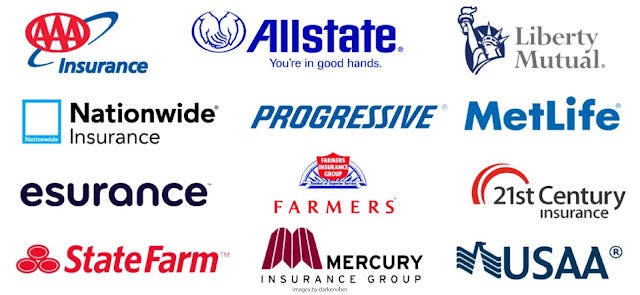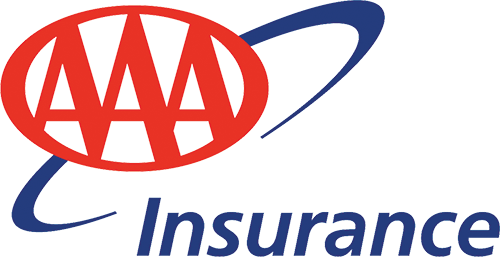Car insurance is a crucial investment, ensuring financial protection in unexpected situations. When it comes to safeguarding your vehicle, choosing the right insurance company is paramount. This article delves into the top 10 car insurance companies, providing comprehensive insights to aid in your decision-making process.
Why Car Insurance is Crucial
Protecting Yourself and Your Vehicle
Car insurance serves as a safety net, offering financial protection in case of accidents, theft, or other unforeseen events. It not only safeguards your investment in the vehicle but also provides coverage for medical expenses and liability claims.
Legal Requirements and Consequences
Most jurisdictions mandate car insurance, and driving without it can lead to severe legal consequences. Understanding the legal requirements and consequences is paramount to avoiding unnecessary trouble.
Factors to Consider When Choosing Car Insurance
Coverage Options
Different insurance companies offer various coverage options. Understanding your needs and assessing the available coverage plans is crucial for making an informed decision.
Premium Rates
While everyone wants comprehensive coverage, it's essential to find a balance between coverage and premium rates. We'll delve into how each of the top 10 companies strikes this balance.
Customer Reviews and Satisfaction
Real feedback from customers is invaluable. We will explore customer reviews and satisfaction levels for each company to give you a comprehensive overview.
Top 10 Car Insurance Companies - A Comprehensive Review
USAA - The Unrivaled No. 1:
American Family - A Strong Contender:
State Farm - Consistency and Affordability:
Geico - Affordable Excellence:
Nationwide - Balanced Performance:
Farmers - Satisfactory Service:
Travelers - Reasonable Rates:
Allstate - User-Friendly Policies:
AAA - Discounts and Extras:
Progressive - Varied Discounts with Drawbacks:
Types of Car Insurance
1. Liability Insurance: Protecting Others on the Road
Liability insurance is a fundamental type of coverage that pays for injuries and property damage caused by you in an at-fault accident. It ensures that you can fulfill your financial responsibility to others involved in the incident.
2. Collision Coverage: Safeguarding Your Vehicle
This coverage pays for the repairs or replacement of your vehicle if it's damaged in a collision with another vehicle or object, regardless of who is at fault. Collision coverage is essential for protecting your investment in your car.
3. Comprehensive Coverage: Beyond Collisions
Comprehensive coverage provides protection for non-collision events, such as theft, vandalism, natural disasters, or hitting an animal. It's a comprehensive safeguard against various unpredictable incidents.
4. Uninsured/Underinsured Motorist Coverage: Covering the Gaps
This coverage steps in when you're involved in an accident with a driver who has little or no insurance. It ensures that you're not left shouldering the financial burden caused by an underinsured or uninsured motorist.
5. Personal Injury Protection (PIP): Ensuring Your Well-being
Also known as no-fault insurance, PIP covers medical expenses, lost wages, and other related costs for you and your passengers, regardless of who is at fault in an accident. It provides crucial support for your well-being after an incident.
6. Medical Payments Coverage: Additional Medical Protection
Similar to PIP, medical payments coverage reimburses medical expenses resulting from an accident, but it typically doesn't cover other costs like lost wages. It's an additional layer of protection for your health.
7. Gap Insurance: Bridging the Depreciation Gap
Gap insurance comes into play when your car is totaled, covering the difference between what you owe on your auto loan or lease and the vehicle's depreciated value. It's particularly valuable for new car owners who may owe more than the car's current value.
8. Rental Reimbursement Coverage: Keeping You Mobile
If your car is in the shop for covered repairs, rental reimbursement coverage helps with the cost of renting a temporary replacement vehicle. It ensures you stay mobile even when your car is out of commission.
9. Towing and Labor Coverage: Roadside Assistance
This coverage provides assistance if your car breaks down, covering services like towing, jump-starts, flat tire changes, and locksmith services. It's a practical addition for those who want peace of mind on the road.
10. Classic Car Insurance: Tailored for Vintage Vehicles
For owners of classic or antique cars, classic car insurance offers specialized coverage that considers the unique value and needs of these vehicles. It's a must-have for preserving the investment in a vintage automobile.
According to our most recent analysis, the average annual cost for car insurance is $1,547, or about $127 per month. Remember that car insurance premium rates are highly individualized and based on several considerations, so you could pay more or less than the average.
*Rates are based on average sample quotes for male and female drivers ages 25, 35, and 60 who drive 12,000 miles per year, have medium coverage, good credit, and have a clean driving record.
Your car insurance premium can vary based on many of the following factors:
- Location
- Age and years of driving experience
- Gender
- Car make and model
- Driving record
- Coverage selection (i.e., minimum vs. high-level coverage)
There are many ways for drivers to save through discounts offered by insurers. Ultimately, the best way to find a premium that fits within your budget — and a policy that suits your needs — is to shop around and compare quotes from multiple insurers.
Conclusion
In the complex landscape of car insurance, knowledge is your best ally. Armed with insights into the top 10 car insurance companies, their strengths, and their unique offerings, you are now better equipped to make a decision that aligns with your needs and preferences.










0 Comments